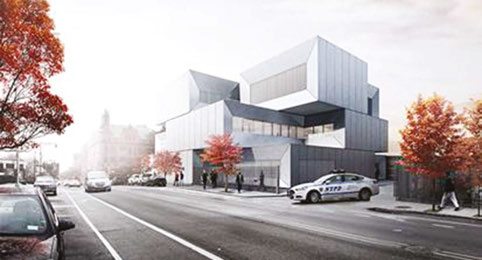
(New York, NY – August 25, 2016) Western Energy Regional Center, a U.S. Citizenship and Immigration Services (USCIS)-approved EB-5 Regional Center, will host informational seminars in Mumbai, Pune and New Delhi, India, in October to educate high-net-worth (HNW) Indian families about the benefits of the EB-5 investor program versus an F-1 student visa for children who wish to attend an American college or university.
 Designed for high-net-worth families, the EB-5 Program has been in effect since 1990. Through EB-5, immigrants to the U.S. invest $500,000 (approximately Rupees 3.35 crores) into a U.S. Government-approved Regional Center, such as Western Energy. The program provides permanent residency to investors and their immediate family. The EB-5 Investor will receive all of the same benefits as anyone who is a U.S. citizen, and the family will retain these benefits and opportunities for all succeeding generations.
Designed for high-net-worth families, the EB-5 Program has been in effect since 1990. Through EB-5, immigrants to the U.S. invest $500,000 (approximately Rupees 3.35 crores) into a U.S. Government-approved Regional Center, such as Western Energy. The program provides permanent residency to investors and their immediate family. The EB-5 Investor will receive all of the same benefits as anyone who is a U.S. citizen, and the family will retain these benefits and opportunities for all succeeding generations.
Western Energy’s research into HNW Indian families has revealed the following:
They do not want the uncertainty associated with visa lotteries; they want certainty of their immigration status in advance.
They do not like paying the inflated fees charged to foreign students by U.S. universities.
They do not want their children to have work restrictions after they graduate. The requirement to be “sponsored” by their employer after graduation causes a competitive disadvantage for top positions. The need for sponsorship also reduces the opportunity to pursue entrepreneurial opportunities.
They are happy to participate in immigrant investor programs, but they want to invest low-risk products that aim to return their invested capital, plus interest, over the same time period as their children are studying in the U.S.
Gregory Neher, CEO of Western Energy Regional Center, claims their EB-5 Investor Visa Program is a superior alternative to the traditional F-1 student visa for the following reasons:
It provides a U.S. Green Card for participants and their immediate family (including all children under 21 years of age). This means parents and children will all become permanent U.S. residents at the same time.
Children of families holding EB-5 visas pay lower, in-country college tuition.
College graduates in the U.S. will be permanent residents, so they do not need to be sponsored by their employer, putting them on the same playing field as American citizens and providing them with a competitive advantage over other international students.
The investment provides investors with first lien position, and they get paid back first at maturity.
Neher also said: “As permanent residents, EB-5 families keep the option of permanently resettling in the U.S., splitting time between the U.S. and their current home or using their new Green Card for occasional visits. In all cases, the EB-5 visa is far more flexible and robust than other options. In addition, on August 1, 2016, the EB-1 visa, formerly a popular choice for Indians immigrating to America, has been paused for Indian Nationals.”
Currently, 10,000 visas are allocated annually to EB-5 investors. Between 2009 and 2013, 162 EB-5 visas were issued to Indians. “Compared to the number of high-net-worth Indians (HNIs) in India, there is a huge opportunity here. China currently tops the list, and we now expect many more HNIs to go the EB-5 route,” Neher said.
In addition to many direct relationships with HNW families, Western Regional also works closely with chartered accountants, lawyers and wealth managers who have close relationships with HNIs. “Awareness of the EB-5 program is really growing, since it is the cleanest path for Indian families to access new education, immigration and citizenship options,” Neher reiterated.
For more information about the company’s upcoming information seminars in India, please visit www.wercregionalcenter.com or contact Reema Rasool via email at reema@wercregionalcenter.com.





Be the first to comment